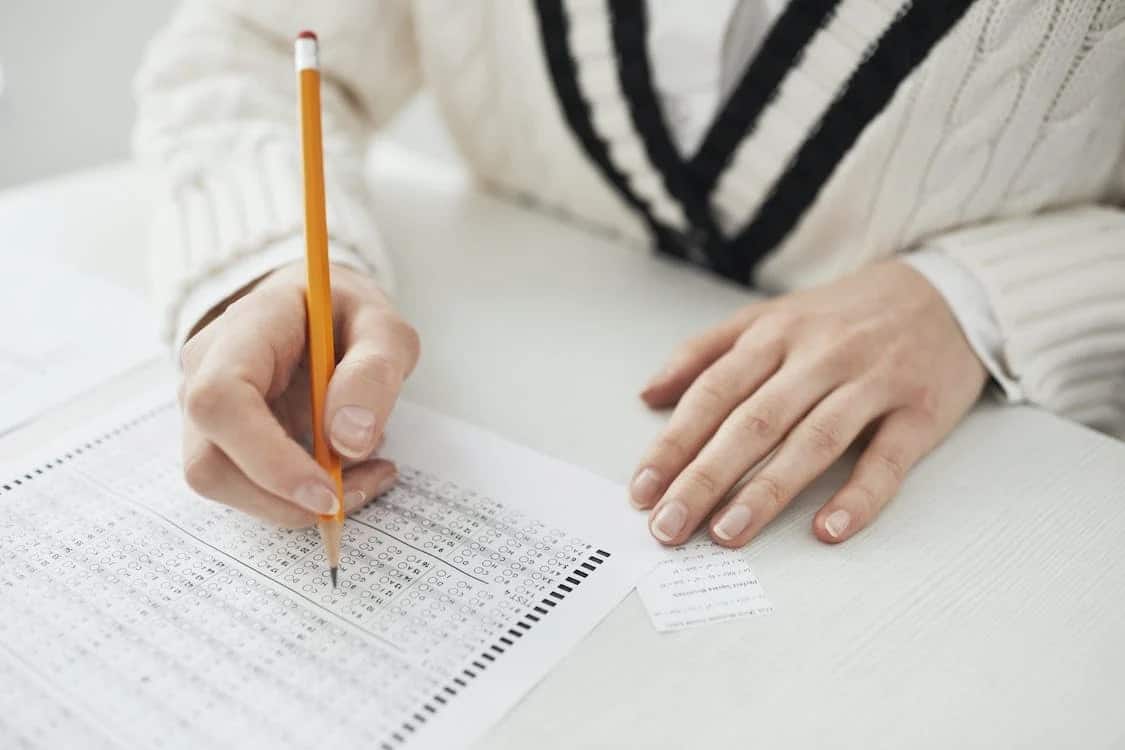“Used to” and “Use to”: What Does It Mean?
“Used to” or “use to”? What’s the difference? Many people who join the ESL course program would be confused about this. Since they sound similar, and we can barely distinguish the difference by listening.
“Used to” and “use to” both refer to something that somebody habituates or becomes accustomed to. In this article, we will introduce the differences between “used to” and “use to”, and there is a practice at the end of the article to help you check whether you learn it well! You can check our other articles if you are always wondering how to learn English.
“Used To” as an Adjective
As an adjective, “used to” refers to the feeling of being accustomed to something, here are some examples of “used to”as an adjective.
- He is used to fixing this. (correct)
He is use to fixing this. (incorrect)
- We aren’t used to having breakfast. (correct)
We aren’t use to having breakfast. (incorrect)
- They were used to studying at home. (correct)
They were use to studying at home. (incorrect)
“Used To” as an Verb
As a verb, “used to” refers to a past habit, action, or fact that is no longer exist. Here are some examples of “used to” as a verb.
- He used to take a shower in the morning. (correct)
He use to take a shower in the morning. (incorrect)
- We used to meet at the station. (correct)
We used to meet at the station. (incorrect)
- They used to stay up late to study. (correct)
They used to stay up late to study. (incorrect)
Rule of Thumb
When using the irregular verb (to be) in any sentence, if the verb following used to is in form V+ing, always use “is/am/are (present continuous)”
“Used to”: Former Fact, Habit, or Action
How do we write a sentence with “used to”?
The format is: subject + used to + bare infinitive.
For example:
- I used to smoke after dinner.
It means I smoked after dinner in the past, but now I don’t smoke anymore.
- I used to dance in my free time.
It means I danced in my free time in the past, but now I don’t dance anymore.
- I used to have breakfast at 9 am.
It means I had breakfast at 9 am in the past, but I don’t have breakfast now; perhaps I’m fasting.
“Use To”: When it Comes With “Did”
It’s “use to” when the sentence includes “did,” which is an auxiliary verb.
For examples:
- Did you use to smoke after dinner?
- I didn’t use to smoke after dinner.
- Did you use to dance in your free time?
- I didn’t use to dance in my free time.
With the same rules above, it’s “use to” instead of “used to” in a question or negative sentence which includes “did” to talk about habits.
- Did you use to have breakfast at 9 am?
- I didn’t use to have breakfast at 9 am.
In these sentences, it means the person didn’t have the habit of having breakfast in the past
In general, “use to” and “used to” are the same meaning in the sentence, it just changes the form due to grammatical rules.
In a nutshell:
| used to | use to | |
|---|---|---|
| Meaning | Refer to something that somebody habituates or becomes accustomed to. | Refer to something that somebody habituates or becomes accustomed to |
| Usage | Be used in most situations | When there is “did” in the sentence |
| Example | I used to learn English online. | Did you use to learn English online? |

“Used To” vs “Use To”: When To Use
Now we have the idea of how to tell the difference between “used to” and “use to. Let’s read the dialogue to know it better.
Dialogue in a restaurant
Waitress: Hello, are you ready to order ?
Customer: Yes, we are. Do you have any recommendations?
Waitress: Sure, did you use to have beef as your main course? Our steak is popular !
Customer: Yes, I used to order steak, but now, I’m a vegetarian!
Waitress: All right, how about the salad? It’s also popular.
Customer: Uhm… I don’t like the salad, could you recommend another one?
Waitress: Okay… I used to recommend vegetarian tacos to the customers, but it’s sold out.
Customer: Okay… Although I didn’t use to have salad, I’ll give it a try, I’ll take the salad, please.
In this dialogue, they use “used to” to express their habits in the past. If there is “did” in the sentence, like “I didn’t…” or “Did you…” it changes to “use to” without the “d”.
To the customer, he was omnivorous so he “used to” order steak as his main course, but now, he is a vegetarian, so he doesn’t eat meat anymore.
Dialogue in a gym
Visitor: Hi, are you done with this bike?
Member: Yes. It’s all yours. Just let me towel it off for you.
Visitor: Are you a member here? I’m trying out a few gyms this week.
Member: Yes, I just joined here for one month; I used to work out at the park.
Visitor: Cool, did you use to work out with a friend? I’m looking for a partner.
Member: I didn’t use to work out with friends, but it sounds great!
Visitor: That’s awesome!
In this dialogue, the member said he “used to” work out at the park, which means he worked out at the park before, but now, he works out at the gym.
And the visitor is looking for a partner to work out together, so he asks, “Did you use to…” he uses “use to” because there is “did” in the sentence.

Tips To Remember the Difference
If you are using this phrase as an adverb in an affirmative sentence, you should always choose ”used to.” “use to” is always incorrect in this context.
Get Used to It: Usage
Is the grammar challenging? We will get used to it.
In this case, “get used to it” is a commonly-used phrase when it refers to “become habituated” We use this construction when we want to express that habituation is ongoing.
for example:
- The weather in Japan is cold, but you will get used to it. (correct)
The weather in Japan is cold, but you will get use to it. (incorrect)
- Learning English online is hard to habituate at first, but we will get used to it. (correct)
Learning English online is hard to habituate at first, but we will get use to it. (incorrect)
As we can see, “used to” is always the correct one for the structure.
In English, many words sound similar, like “Too or To”; we call them “homophonic phrases/words” we need to know the grammatical rules and be careful while using them; it will be easy to distinguish them.
Phonetic Confusion: Why Do They Sound So Similar?
Have you ever considered why these two phrases are so easily confusing? One of the reasons is that it sounds very similar, called phonetic confusion. When someone is talking to you, it’s tough to distinguish between “used to” and “use to”; there are some reasons why it happened.
Use: The S Sound
The word “use” has different sounds depending on whether it is a noun or a verb.
- When we use “use” as a noun, it has an “s” sound, it means “the intended purpose of an item”
For example: put this pencil to good use.
- When we use “use” as a verb, it has a “z” sound, it means “to put into action”
For example: I use a pen to write an article.
- When we use “use” as a verb, the meaning is “to no longer do something that someone is accustomed to doing in the past”
For example: Andy used to drink coffee in the morning.
Used To: The D Sound
The sound of D in “used’ and the T in “to” are easy to blend, and that’s why they sound so similar. They both use the soft s sound as well, so it’s hard to tell which phrase a speaker is saying.
There are two ways to distinguish the difference between them, one is to read the sentence in texture, and the other is to determine the semantics of the speaker’s words.
Let’s Practice “Used to” and “Use to”!
We all know the difference between these two phrases. Let’s do some practice to make sure we understand. Write down the answers on paper, then check the answer at the end of the paragraph afterward. Practicing after learning a new concept is the best way to learn a new language! (answer at the end of paragraph)
Is it use to or used to ?
- Aaron _____ play tennis with his friend after school.
- Amy _____ read a comic book before sleep.
- Did the dog _____ play with his owner in the park?
- Wade ______ have breakfast at 9 am in morning.
- Camilla didn’t ______ smoke after dinner.
- We didn’t ______ drink so much.
- Richard ______ read the book to his classmates.
- Adam ______ go skiing in northern Japan in winter.
- Herbert ______ play basketball after school.
- Did they ______ stay out late?
- Jimmy didn’t ______ say hello to his teachers.
- Jasmine ______ dance when she is happy.
Never Be Confused Again
“Used to” and “use to” are interesting, yet confusing phrases, because they sound the same, but have different spellings. But despite the confusion they cause, it’s not impossible to learn the difference and master these phrases. With daily practice and the help of amazing English tutors, your problems would be solved in no time!
If you enjoyed this article, and want know how to learn English well, make sure to check out AmazingTalker now.

The Answers to Practice
- used to
- used to
- use to
- used to
- use to
- use to
- used to
- used to
- used to
- use to
- use to
- used to
















